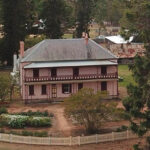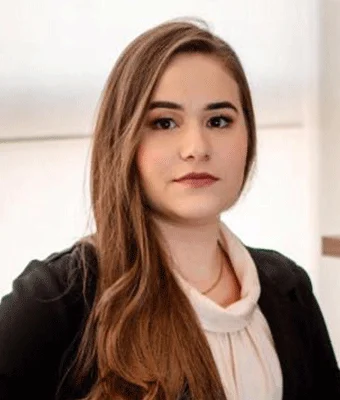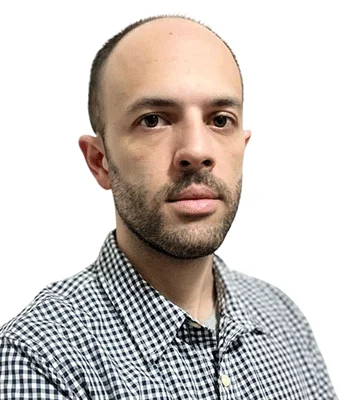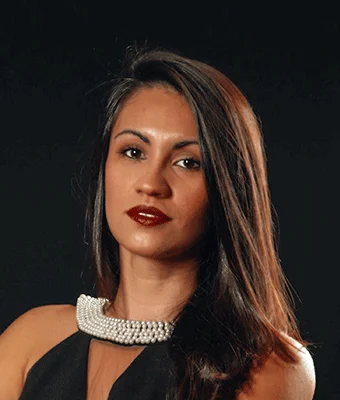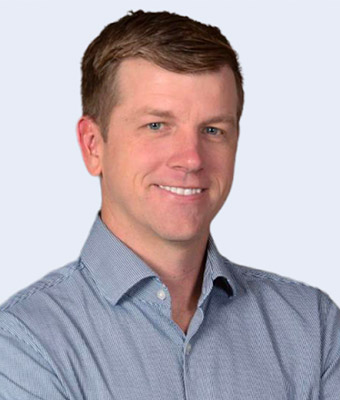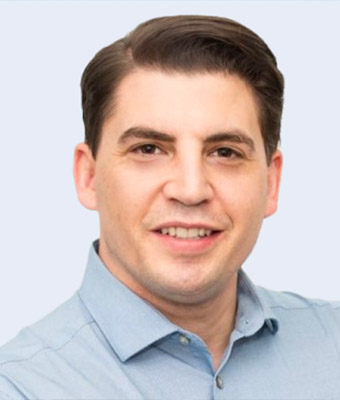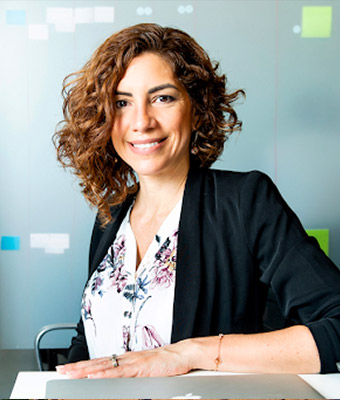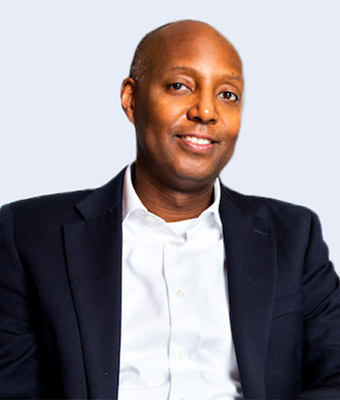“Brazil is a complex country, not a country for beginners.” – Tom Jobim
Long-term global investors that choose to invest in Brazil understand Tom Jobin’s quote quite well. These investors have gained expertise, built teams on the ground, and have made money. They may have had a bruise here or there, but they now understand an emerging market that is the 13th largest economy and sixth largest population in the world. Brazil possesses a strong secular demand story in many areas for real asset investors in real estate, infrastructure, energy, renewable energy, and potentially other real asset areas. In fact, as evidence our firm actually was a co-investor in a transaction that generated an approximate 40% IRR post currency hedging. Please find a case study of that transaction here. This is The Good.
Notwithstanding this core reality that there are attractive real asset opportunities in Brazil, the past decade has been… well not for beginners. GDP in real US$ terms is currently estimated at 1.49 trillion (down from US$ 2.06 trillion in 2017, interest rates have ranged from 2 to 6.25 in the previous year (but peaked at 14.25 in 2016), productivity growth was -4.1% in 2020 and declined overall in the last ten years, and from a start of an emerging market darling along with India and China, Brazil has no clear growth story from a macro basis. This is The Bad.
Still many global investors persist and seek opportunities. However, even in taking advantage of strong niche secular growth stories and navigating the risk and rewards of Brazil, when we convert those returns in US$ we see the currency is down around 75% compared to US$ from its peak of US$1.54/R$1 in 2011. This is The Ugly.
How does one invest intelligently in this environment?
Introduction
In November 2009, the well-known British weekly politics and economics magazine The Economist published an issue with the famous Christ the Redeemer statue in Rio “taking off” as if a rocketship, suggesting that it was finally Brazil’s moment. Less than four years later, in September 2013, the statue-rocket was seen once again on the cover, this time sputtering and with the question “Has Brazil blown it?”. In November 2019, marking the tenth anniversary of the original cover, Christ the Redeemer was seen on the cover, holding an SOS sign with the headline “The betrayal of Brazil.” So what happened?
Commodity Supercycle
During the commodity supercycle from the mid 2000s to 2012, Brazil ran large fiscal surpluses, there was a tremendous amount of credit pumped in the system, and it appeared that Brazil was on track to escape the middle-income trap. More specifically, federal expenditures increased from 15.1% of GDP in 2003 to 18.1% of GDP in 2010, while net federal tax revenue increased from 17.4% of GDP to 20.2% during the same period. While this increased spending was supported by the increase in taxes (which in turn was supported by the period of growth) and was partially directed towards poverty reducing social programs, it became problematic as commodity prices began to drop.
As a result, the government enacted a number of credit programs aimed at increasing consumer spending in order to quell the reductions in economic growth. But as commodity prices continued to drop, and government spending continued to increase through the new credit programs, the entire system became unsustainable.
Economic Peak
Yet, during the peak period of economic expansion, between 2003 and 2008, GDP growth actually averaged about 5% per year and was the longest period of uninterrupted growth in 30 years (since the military dictatorship). Particularly, given the strong currency at that time, GDP per capita even reached US$13,245 in 2011. This actually was fueled by an increase in exports between 1998 and 2004, in total volume and not in prices, which served as a precursor to this period of continued growth. In fact, the current trade account moved from a deficit of 4% of GDP in 1998 to a surplus of 1.8% by 2004, largely spurred by agriculture.
A Dream Delayed
In 2014, as these economic issues were beginning to take hold, the large corruption investigation, Operation Car Wash, was beginning to indict a number of high-profile politicians, as well as executives at large companies, such as the oil company Petrobras.
By the second quarter of 2014, Brazil had entered into a technical recession. In 2015, Brazil’s GDP fell by 3.5% and in 2016 by 3.3%. The economy lost over 1.5 million jobs in 2015 alone. This recession resulted in a fiscal crisis and increasing government budget deficit which grew to 5.8 billion reais in the first three months of 2016 and was the largest since December 2001.
At the same time, Dilma, who was Luiz Inácio “Lula” da Silva’s (Brazil’s president from 2003-2010) handpicked successor as president, was impeached in 2016 for breaking budget laws, and her vice-president, Michel Temer took over. While he had some of the lowest approval ratings in history, less than 3% at some points, he was able to enact some initial economic reforms.
A Tropical Trump?
Yet, this paved the way for a tumultuous 2018 election. The 2018 election was indeed one of the most interesting in recent history. Lula, although imprisoned serving a 16-year sentence, was the leading candidate in early polls (he has subsequently been released due to inconsistencies in the prosecutorial process). However, seemingly out of nowhere, a relatively obscure candidate – Jair Bolsonaro – with 27 years of Congressional experience and no major legislative accomplishments, no major party support, and a history of controversial statements would be elected.
Bolsonaro’s candidacy as an “outsider” (he was not involved in the Lava Jato and corruption scandals), combined with anti-PT sentiment provided a path to victory. He also campaigned on a number of hot-button social issues, including crime reduction through increased powers granted to police, opening up gun ownership for large portions of the population, and discussions of restricting abortions even in cases where a crime was committed. And as we all know, 2020 brought the global financial crisis resulting from the Covid-19 pandemic from which global recovery has been slow to take hold. Brazil’s slow response to the pandemic and difficulty in containing inflation have made this recovery more complicated.
The Results for Investors
For investors that have committed to Brazil through this phase, BRL to US$ returns were hard at best. The economic cycles, interest rates cycles, and particularly the currency cycles made this period anything but easy to predict and to navigate. While opportunistic investors had a chance to flourish with correct entry and exit of distressed investments, longer term investors in US$ suffered.
Upon These Shoulders a Champion Emerges
But one area has held strong in Brazil through all these cycles. Agriculture. A 2017 World Bank report notes a number of compelling findings regarding this sector in Brazil.
- In economic downturns in Brazil, agricultural sector decline is less than that of the economy as a whole and recovery is faster than the overall economy
- Brazilian agriculture has been an “island of success” in terms of productivity growth in the last decades compared to other Brazilian economic sectors and other countries’ agricultural sectors.
- Productivity growth of Brazilian agriculture has been driven by investments in agriculture innovation, trade liberalization and facilitation of sector financing.
- Productivity has room for further growth through improving productivity of mid-size farmers and regions, improved agriculture financing, and advances in agronomics.
For investors that consider Brazil investments or currently possess a portfolio of investments in Brazil, is there a way, internal to Brazil, to moderate exchange rate risk? Does a natural hedge exist?
Purpose of the Newsletter
I have lived the life of a US$ investor in Brazil. I have invested capital at almost the peak, have had some wins, some losses, and most importantly am still in the game. However, now I am more excited and calm about Brazil than I ever have been and this is from the perspective of a US$ investor who is “unhedged” in a traditional sense in Brazil. My goal in this newsletter is to provide some experience sharing that I believe can be helpful for global investors that either have Brazil on their radar or already have a portfolio of investments in Brazil.
Where am I Coming From?
I arrived in Brazil in November 2009 and Brazil was on top of the world. It was an awesome time. The energy was incredible. Brazil was the country of the future and one of the top emerging markets. It was in the middle of a commodity supercycle, soon was to have GDP growth of 7.53% in 2010, and was the complete opposite feeling of NYC. When I was in NYC in late 2009, one could almost feel the downturn around. The US GDP and Europe GDP both declined, at 2.54% and 4.33%, respectively, in 2009. In fact, at that time Brazil was investment grade and Lula was called “The Man” by President Obama.
Young adventurous, optimistic, and perhaps silly people like me, I use young generously, found themselves in Itaim Bibi (the financial district in Sao Paulo). One could have a BBQ, and I had many, and have literally fifty to one hundred young smart expats show up and more were showing up everyday. It was perhaps the best time of my life. I started my second company, met my wife, and decided Brazil was the place to make my fortune and build my life. On a quick trip to the USA, a friend of mine met me at Union Station in DC and said, “Wow, what a great decision to move to Brazil and start a business. The wind is at your back. All you have to do now is execute awesome.”
Flash forward to 2021. Well, I am older but I can say that in Itaim Bibi one does not see the same crowd. Perhaps less expat couples, my wife is from Spain and I am from the USA, are meeting and falling in love (we now have four kids which is insane by the way). From a macro perspective the economy did not grow. In fact, actually in US$ terms, Brazil’s economy is the same size or smaller than at its peak. Productivity growth is stagnant, and the political situation is tricky at best.
In fact, many real asset investors lost their shirts and pulled out. In some investment offices in the USA, one cannot say the word Brazil. Entrepreneurs, many of them close friends, shut down businesses, Investors withdrew and took losses. Among many there is frustration, fatigue, and exasperation.
If you are still reading, you too are perhaps a Brazil survivor. You have made enough money to justify the risk of Brazil and remain committed to the market. OK, great and I would love to hear your story. Let me ask you a series of questions. What if there was a way to invest in Brazil and make money in hard currency without a hedging strategy? What if there was a way to take advantage of Brazil’s high cost of capital but do such in US$? What if internal to Brazil there was literally a natural currency hedge? I know you are thinking, “that is it, I am reading a newsletter from an insane person…” Maybe…but what if I am not?!
Flashback in Time – Ground Floor Opportunity
As an investor thinks about Brazilian agriculture as an investment opportunity, an important parallel is the situation of Brazilian real estate fifteen years ago. At that time, there was limited to no real estate capital market, long-term mortgages were limited, the market was constrained largely to presells and swaps as financing tools. There was a clear lack of debt that matched the reality of cash flows of the business, and very few asset managers or professional investors were active and able to navigate the space successfully.
A core challenge at the time was that there was no institutional liquidity for real estate assets. While individual developers – who were able to navigate the nuances of pre-sales and permutas – were able to pursue large-scale projects, the manner in which the market functioned was not easy to navigate for many large-scale institutional investors.
To be clear, even with these difficulties, or perhaps because of them, the opportunity set was large. For example, Sam Zell’s Equity International did quite well by navigating this market through the investment and creation of operating platforms, like Gafisa and BR Malls, that were able to access the capital that was available and most importantly, rapidly navigate the unique challenges and opportunities in the market and execute a first mover advantage.
It is important to understand that while Brazil real estate still undeniably has opportunities, particularly at the right time in the cycle on an opportunistic basis, the market is clearly at a different stage of maturity. The real estate capital markets are well developed, in most of the newer buildings in Itaim Bibi there is at least one (or perhaps several) real estate asset manager or direct investor with a decade or more of experience. Asymmetries of information are lower and the opportunity set is significantly more competitive than it was 15 years ago. Importantly, almost all real estate in Brazil is denominated in BRL and the currency has had a tough run during much of this period. The Brazilian Real, in relation to its US$ value, is 74% below its July 2011 peak.
With that in mind, a number of questions emerge. Is there a way to better manage Brazil currency risk? Is there a way to balance out opportunity and risk? Are there substantial scalable US$ / Real Asset backed returns in Brazil? What if we told you that there was a US-based sponsor that has done this for over 20 years?
Why Do We Reconsider Brazil or Are You Perhaps Insane?
So why do we still consider Brazil? Maybe to make it easier, I will state why I am still active in Brazil.
- Scale: While not China, there is real scale in the Brazilian market. Especially as compared to those in Latin America. Brazil is about 51% of South America’s economy and about one-third larger than Mexico in GDP, even with this very tough decade.
- Capital and Information Asymmetries: As compared to the USA and Europe at least, there are many inefficiencies that investors can take advantage of at certain times in the cycle. An extreme example of this is that in our last transaction we purchased a real estate asset fully leased for an approximate 12% cap rate and sold in less than twelve months at approximately at 8% cap rate. This rarely happens in more developed markets.
- Niche Opportunities: Whether in rental housing, self storage, senior housing, or agriculture, there are several niches where overseas experience and ability to see Brazil’s future can create outsize returns for real asset investors.
- Supply-Demand Characteristics: Due to these unaddressed areas in Brazil and the limited amount of long-term capital available in the market, global investors have demand for their capital but less competition in viable investment opportunities.
Profile of An Ideal Brazil Investment
As we execute transactions or strategies in an emerging market such as Brazil, we can only justify remaining in the country if we can find strategies that match our capital requirements. I am speaking to the choir here, but I think that these are the criteria that many of us use in thinking about Brazil.
- Scale: Is there a chance to make large-scale profits and deploy US$100M capital over 3 years? Can a first investment be at least US$10M to US$20M in size?
- Lower Risk – Solid Predictable Return: Ideally the investment has current income characteristics to lower the risk. At least in the internal market, there are clear comparable exit transactions.
- International Demand for Asset Class: Will other large-scale investors have interest in this asset?
- Clear Legal Structure: The last thing I need is to go to Brazil’s courts! How does one avoid that reality?
- Rockstar Sponsor: Aligned sponsor with a clear investment and execution track record of cash in and cash out.
- Real Collateral: Physical asset-based collateral to provide real downside protection.
You May Have Lived Under a Rock and That is OK – I did too
“KISS-Keep it Sweet and Simple”
In 1960, not unlike Occram’s Razor (yes, getting a bit philosophical here!), the U.S. Navy coined the phrase “Keep it Simple Stupid” or “Keep it Sweet and Simple” to convey the principle that most systems work best if they are kept simple rather than made complicated and that unnecessary complexity should be avoided. The points I make now are so obvious we actually wrote a Newsletter about Captain Obvious recently.
- You missed that Brazil is the largest exporter of agriculture globally: Brazil is the leading exporter of soybeans, coffee, sugarcane, and orange juice and the second or third largest exporter of beef and poultry. –You were busy, I understand.
- You missed that there is an ecosystem of Brazil that actually is denominated in US$: Brazil is also the world’s largest importer of pesticides, nitrogenous fertilizers, phosphatic fertilizers ($431M), malt ($371M), and hydrazine or hydroxylamine derivatives (according to 2018 Observatory of Economic Complexity at MIT data). In other words, Brazil’s trade flows are based on agricultural products and the supplies needed to make them happen. –US$ returns are not that important for your investment group, perhaps.
- You missed that this is the most important economic segment of the country: Agriculture is the one industry that holds up Brazil and nearly 25% of its GDP. –This must have slipped your mind while you were at the beach.
- You missed that this has been Brazil’s core strength for centuries: Brazil’s colonial and post-colonial growth since the 1700s has largely been based on mining, sugarcane and coffee exports. –History does not matter, you’re focused on the here and now?
- You missed that there is a massive long-term finance opportunity denominated in US$ in Brazil. –I get it. No one told you.
The Natural Hedge – Brazil Farm Finance
Although agriculture is the largest industry sector in Brazil, many capital and financial needs of farmers are not being met efficiently.
Origins of the Opportunity
For example, for many medium-sized farmers, working capital comes on an annual basis through pre-sale contracts with trading companies and pre-payment at discount rates of around 1% a month. This provides them with a small revenue margin, but locks them into selling a set amount of product at prices that are more favorable to the lender (the trading company) in order to repay the loan. If market prices increase, the farmer is unable to explore this in the free market. And this cycle repeats itself year after year. In the long term, it makes it very difficult for them to make capital investments in their operations or purchase more land.
As an alternative, farmers often turn to the barter system to purchase more land. Unable to pay in cash because of the lack of long-term financing, they close a purchase with a land seller under an agreement to pay a cash equivalent set of bags of crops per year, over a predefined period of time.
Brazilian banking regulations require financial institutions to provide various types of rural credit. However, in reality they too are limited as most credit lines are concentrated in inefficient public-owned banks. Private banks often just provide the minimum options required by law, often have high rates, and do not direct much effort to these programs since these are not a focus area of the banks. Additionally, in most cases these lines are provided only to small scale farmers, leaving middle level operations, the focus of our investment strategy, with no choice but to turn to the two options discussed above.
Big and Beautiful
Yet, when one considers the amount of stored value in medium-large and large farming operations, the scale of this opportunity becomes clear. Many of Brazil’s wealthiest families have recognized this and invested in farmland. Yet, for most farmers this stored value and potential liquidity is trapped due to the lack of credit options available for real growth.
Indeed, Brazilian agriculture is not only important to the global economy and food chain, but it is a critical component of the national economy. However, its true potential is not being met, and one major factor in this is the market gap/problem of available credit under the current system. With this identified, and with the right team in place, there is a huge opportunity available.
Making it Happen
In order for such a transaction to be successful, it is not sufficient to only have financial knowledge and recognize the market gap. Significant on the ground agriculture knowledge and experience are essential. Brazil’s continental size means there are productive and arable lands from north to south, but not all of these regions are created equal. Some are more suited to certain practices than others, but with the right knowledge and monitoring practices, lands that were once unproductive are now providing some of the highest crop yields. This opportunity requires the above deep knowledge of Brazilian agricultural lands.
Additionally, a deep familiarity of the Brazilian agricultural ecosystem and network is fundamental. For example, Brazil is the largest global importer of a number of pesticide and fertilizer products. Various types of irrigation systems may also be necessary, depending on regional conditions. Engagement and connections with these and other essential supplier networks are key for not only farming success, but also foundational for the success of this Brazil farm finance opportunity.
You may remember from our previous newsletters that Brazil has a complex legal and bureaucratic structure. This is true for land titling, as well. Various types of registries, environmental compliance and other considerations are factors that cannot be ignored for proper farm management. Years of experience navigating these systems, especially if that experience includes management of not only one’s own lands but in a farm management and administration capacity for others, is also indispensable. Similarly, given the transaction size of this opportunity, experience with farming enterprises at scale, volume, and number of farms under management is paramount.
Finally, but of utmost importance, is having the structures in place if things go wrong in the case of default. A combination of operational experiences can ensure that this risk is mitigated. Various options could be pursued, whether leasing the land and managing a structured sale or direct farming and production on the property in question. However, a management team that has the flexibility to employ either solution is ideal.
The Solution?
At this point, you may be wondering, if this is such a great opportunity, why has it not been done until now? Well, to execute such a platform, one would need the perfect set of qualifications. Unfortunately, people that know specialty finance are not farmers. And likewise, those with extensive farming experience tend to not have deep knowledge of finance. Even so, as was discussed above, there is a deep need for working capital, so most farmers do not have the cash on hand to pursue such a venture. Overcoming that hurdle, one would still need experience in managing large portfolios and to be in the farm management business already to ensure success. Finally, even if one was able to bridge that gap between finance and agriculture, one would still need the sophistication to recognize that this opportunity is not just a typical investment opportunity, but actually is creating a new asset class.
If only there was a farmer – an agribusiness executive team, actually – that not only had the above qualities, but combined those with global farming and finance experience (in the United States and Brazil) and multiple generations of family involvement in the sector, that thinks like an investor, already has an extensive record of farmland portfolio management, can put seeds in the ground and manage the land in case of default, and has their own capital available to co-invest. What if I told you that this team actually exists?
Next Steps
This is a unique opportunity, in a critical sector, with a highly capable team on the ground. For example, you can invest only a certain amount per year, pledge it to the group and gain returns, use the yearly income to actually pay for the hedge on another investment, etc.
Email me at joseph.williams@indevcapital.com if you would like to read a teaser or have a conversation to lower your blood pressure!
Special thanks to Joshua Shake for his help in writing the Newsletter!
Share this:
invest only a certain amount per year, pledge it to the group and gain returns, use the yearly income to actually pay for the hedge on another investment, etc.
Email me at joseph.williams@indevcapital.com if you would like to read a teaser or have a conversation to lower your blood pressure!
Special thanks to Joshua Shake for his help in writing the Newsletter






